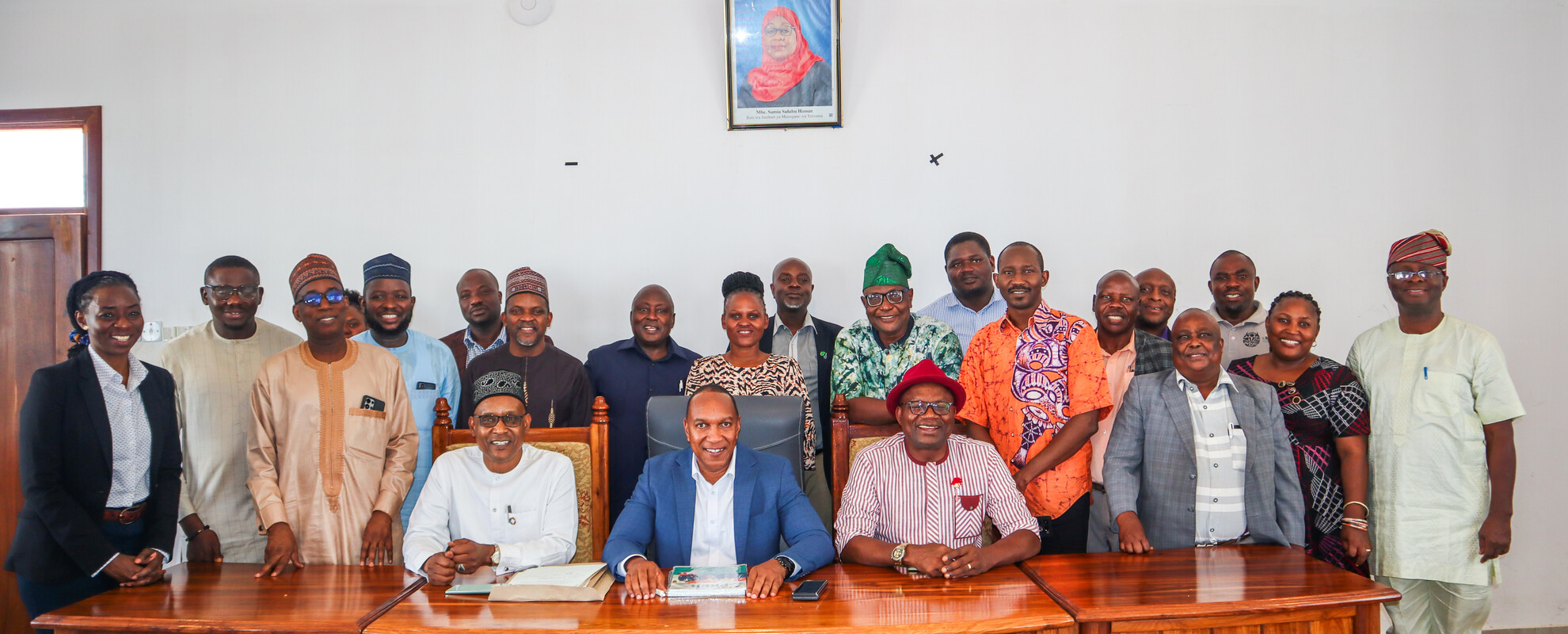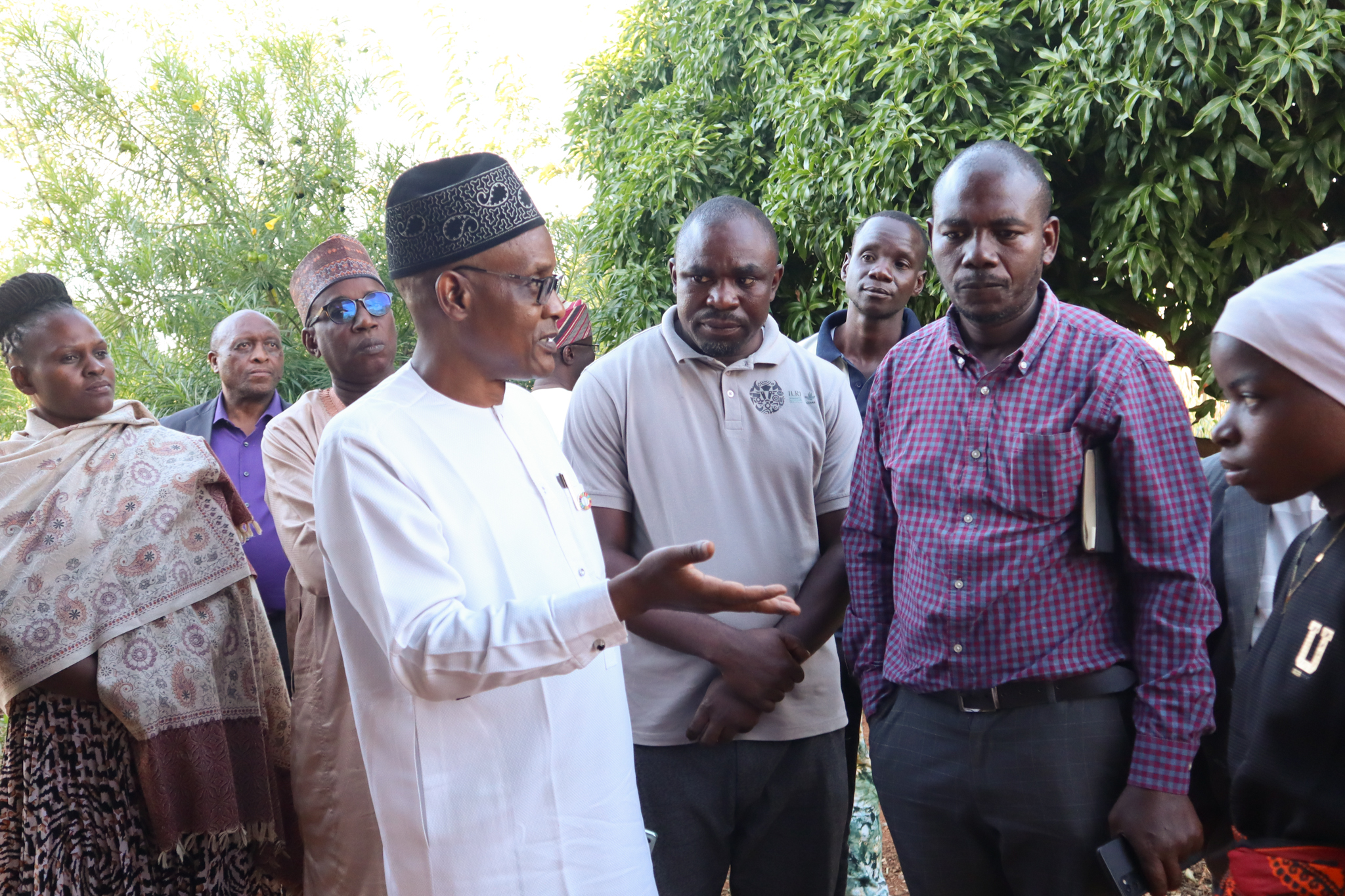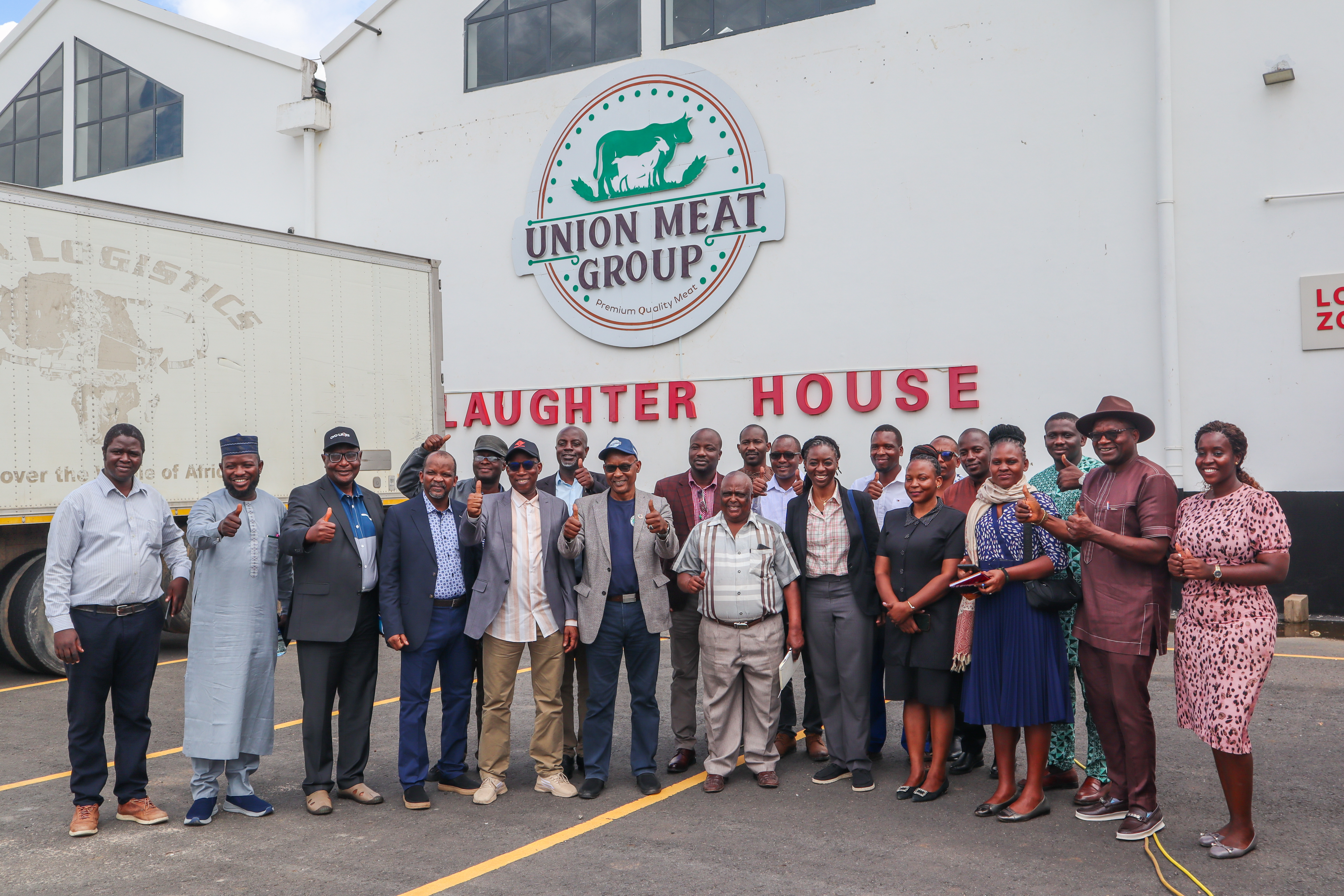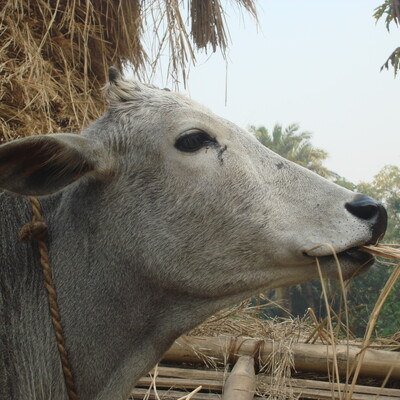

Nigeria's Livestock Master Plan learns from Tanzania’s success
ILRI News
Posted on
Contributors
While high-level policy discussions are crucial, the true measure of a Livestock Master Plan (LMP) lies in its impact on the ground, which requires effective implementation. A recent learning visit by Nigeria's Federal Ministry of Livestock Development (FMLD) to Tanzania, facilitated by the LMP team of the International Livestock Research Institute (ILRI), offered powerful insights into how strategic planning can translate into tangible benefits for farmers and the private sector.
Tanzania’s successful LMP was initially developed with ILRI support in 2018 and is a strong example of how government-championed initiatives can transform a sector. Hence the need for the study tour by the Nigerian delegates to have a firsthand view and learn from the success.
High-level dialogue and strategic alignment
The Nigerian delegation paid a courtesy call to the Permanent Secretary of Tanzania's Ministry of Livestock and Fisheries (MLF), Hon. Riziki Shemdoe, who expressed enthusiasm for sharing Tanzania's journey with Nigeria. He stated:
“The implementation of Tanzania’s Livestock Transformation Plan is a direct outcome of the Tanzanian LMP, with key focus areas including breed improvement, animal health, extension services, pasture and water management, value addition and business environment development.”
Shemdoe explained that for the first time, the ministry plans to launch a nationwide vaccination campaign with an estimated budget of TZS 26 billion (USD 9,632,818). This initiative aims to reduce the prevalence of 13 important disease challenges facing the nation, three of which are livestock-related.
Ishiyaku Mohammed, director of the Sanitary Mandate Unit in FMLD and team lead of the delegation, noted the strong alignment between Tanzania's focus areas and Nigeria's own priorities, which include livestock breed improvement, feed and fodder enhancement, and animal health and zoonotic disease control.
Empowering youth and women in agripreneurship
The tour visited a young female poultry farmer in Iringa region, who was supported under ILRI's Accelerated Innovation Delivery Initiative – Livestock (AIDI-L) project and linked to Tanzania's youth-focused Building a Better Tomorrow – Life (BBT-L) Program. She provided a compelling example of how targeted initiatives contribute to livelihoods and rural development in remote communities.

Victor Egbon, director of Ruminant & Monogastrics Production, FMLD expressed admiration for the young woman's entrepreneurial spirit. He noted,
"It is truly marvelous for such a young girl to be doing that with such enthusiasm. This is a model we can certainly replicate among our many unemployed youths in Nigeria."
Private sector as a pillar of growth
The delegation also engaged with private sector players in Tanzania, observing how LMP-driven policies and initiatives have spurred investment and growth. Visits included:
- Union Meat Group (Ruvu): A meat processing company showcasing ethical livestock rearing, advanced processing, and efficient distribution.
- Hester Bioscience (Kibaha): A leading animal healthcare company specializing in poultry and animal vaccines and health products, demonstrating the vital role of veterinary support in a thriving livestock sector.
Dar Fresh dairy processing plant: A dairy processing facility producing yoghurts and ice-creams since 2010. The Facility has expanded its product lines in recent years to include Ultra-High Temperature (UHT) milk, building on favorable tax policies from Tanzania’s Livestock Master Plan. Company representatives shared how MLF policy reforms like tax exemptions, export fee reductions, and other tax-related incentives contributed by the LMP had impacted their businesses. They also candidly discussed ongoing challenges such as the insufficient local supply of live animals and milk needed to operate at full capacity. Representatives from Dar Fresh highlighted a challenge of low milk supply from farmers during the dry season that underscores the need for integrated feed and forage solutions.
Company representatives shared how MLF policy reforms like tax exemptions, export fee reductions, and other tax-related incentives contributed by the LMP had impacted their businesses. They also candidly discussed ongoing challenges such as the insufficient local supply of live animals and milk needed to operate at full capacity.
Egbon further highlighted how Tanzania's LMP has fostered an enabling environment that supports individuals in the diaspora to successfully operate livestock-related businesses remotely. He cited the Union Meat Group facility in Ruvu as a prime example of how private businesses supported by government initiatives were now contributing significantly to GDP growth, employment, and overall economic expansion in Tanzania. He concluded by affirming the strong commitment of Nigeria's Minister of Livestock Development and the Ministry’s Permanent Secretary to ensuring that strategic livestock master plans are well implemented to drive substantial growth in the livestock sector.

Financing for transformation
Finance is a major part of the LMP and the delegates met with officials of the Tanzania Agricultural Development Bank (TADB), who shared their tailored agricultural lending approach specifically designed to support women and youth. The bank prioritizes financing for value chains identified by the MLF through the Livestock Sector Transformation Plan (a spin-off of the LMP) and provides guarantees to commercial banks to de-risk lending, thereby improving access to finance for farmers. The visit with TADB demonstrated the crucial link between policy, finance, and on-the-ground impact.
The tour concluded with a visit to the Nigeria High Commission in Tanzania, followed by a debriefing session where Nigerian delegates summarized their key learnings and outlined concrete next steps for their own LMP development.
Delegates highlighted that successful implementation requires unwavering political will and government commitment. It is important that financial inclusion models are tailored for grassroots producers, and that policy interventions such as tax reforms and market access facilitation will foster both local production and international trade. Integrating these crucial learnings will help FMLD drive substantial and sustainable growth in Nigeria's livestock sector.
This comprehensive visit has provided Nigeria with invaluable insights into how a well-executed Livestock Master Plan can drive not only policy reform but also tangible economic growth and empower diverse stakeholders across the value chain.
Further reading about the visit https://dailynews.co.tz/dodoma-hosts-nigeria-officials-eyeing-livestock-transformation/
For more information on N-LMP engagements visit:
- Nigeria officially inaugurates the development of a Livestock Master Plan
- ILRI unveils the Nigeria livestock master plan at the Nigerian Veterinary Medical Association Congress and Annual General Meeting
- Building a data-driven future for Nigeria’s livestock sector
- Key insights from the Nigerian Livestock Sector Assessment workshop
- Nigeria LMP – Aligning science, strategy and political will
Visit the ILRI Livestock Master Plan website for more information.
You may also like
ILRI News
ILRI presents results of Livestock Sector Analysis and Strategy for Nigeria: Major step towards a national livestock master plan

ILRI News
Veterinary conference challenges experts to adopt new approaches to livestock development in India
Exploring integration of KAZNET into Ethiopia’s national and regional resilience programming and information systems
Related Publications

Context Matters: Tackling Methane in Livestock Systems for a Sustainable Future
- Food Systems for the Future (FSF)
- Environmental Defense Fund
- International Livestock Research Institute

Livestock farmer groups for innovation uptake, market access and policy influence in Mai Son District, Son La Province, Vietnam
- Thinh, Nguyen Thi
- Thanh, Lo Quang
- Le, Pham Thi
- Marshall, Karen
- Atieno, Mary
- Burkart, Stefan

One Health scientific conference: International practices and lessons learned for Vietnam
- Vietnam One Health Partnership
- International Livestock Research Institute

Policy levers to unlock climate finance in the livestock sector: A guide for national policymakers to integrate livestock in climate strategies
- Alemayehu, Sintayehu
- Cramer, Laura K.
- Gonzalez Quintero, Ricardo
- Kimoro, Bernard
- Kohler, Gregory

Proceedings of the First Technical Advisory Steering Committee Meeting for ‘Strengthening Adaptive Capacity of Extensive Livestock Systems for Food and Nutrition Security and Low-emissions Development in Eastern and Southern Africa’ Project in Ethiopia
- Mekuriaw, Shigdaf
- Dijk, Suzanne van
- Makonnen, Brook T.









